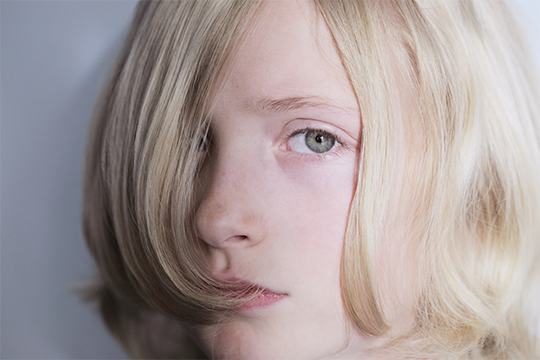By BARBARA MARTIN

I’m too frustrated with my child to enjoy parenting
Question: It seems I am constantly frustrated with my child. I want to enjoy them, but my child’s ongoing disobedience is making this difficult. Suggestions?
Building a relationship with your child, while at the same time trying to put up limits and discipline them so they will be successful adult, is indeed a challenge. As the mother of three now-adult boys, when they were young, I well remember the exhaustion I felt in trying to be the best mom I could be, and fearing I was not doing a good enough job. Gary Landreth gives some parenting advice I wish I’d had then: “Focus on the doughnut and not the hole of the doughnut.”
How often do parents simply take time to know their child? What are their likes, fears, reasons for anger? What makes them sad, and what is it like to simply be them? How often, as parents, do we judge, interrogate, correct or simply stay in a teaching mode with our children rather than learning who they are as separate individuals from us?
I remember asking my boys as adults what I missed when they were young. My oldest said that I missed the fact that he was struggling in school, not because he was lazy but because he had ADD. My fears for him overruled me taking time to know what was going on inside of him.
My middle child said that my focus was on him being perfect in every way, so I missed understanding that he was not perfect, and showing grace in that.
My youngest said I interrogated him too much, so he feared telling me things that might have been good for him to talk about. Instead, he feared the possible inquisition that might happen if he shared that with which he was dealing.
My curiosity about what my sons were dealing with would have been a gift in their life, but my own parenting fears and expectations kept me from expressing that well. I might have been more effective if I had realized the importance of focusing on the “doughnut,” the person of my child, rather than on what I thought was missing. I am not at all saying that discipline and training are not valuable, but at times I wonder if this becomes the main thing we do rather than trying to understand who our child is.
I remember hearing about a little boy who was 3 years old. A new little sister had just been born. She had pretty severe colic, so she cried often. His parents were stretched thin, trying to deal with a crying baby, their own jobs and a 3-year-old boy. They noticed he seemed to be regressing in two areas: 1) He had been potty trained early but was wetting his pants again and would stand right in front of the toilet to have a bowel movement. This was not something he had struggled with before, so they were concerned. 2) He was also not obeying as well as before. He knew the rule not to cross the street without an adult holding his hand, but he would dash across the street on his own. I asked how he was doing with his new sister. He seemed okay, they agreed, but if he got mad or appeared sad, they told him he needed to put on a smile because they were all going through a difficult time; he needed to help them manage.
What do you think might have been going on with this little boy? He was not doing as he was told, but there were reasons he was reacting to all of these changes in this way. His parents were doing the best they could, but somehow, they were missing the fact that their son had emotions he was dealing with, and correction alone was not solving them.
This is where the idea of emotional coaching can help. For example, “Hey son, I can see you feel sad right now. But when you are sad, you can’t run across the street without an adult. Let’s think together about other things you can do when you feel sad.” When a parent does this, the child feels valued and known; his emotions are accepted. At the same time, he learns there are limits to behavior even when feelings are strong. Empathy is given for sadness, but also guidance in learning how to deal with strong emotions.

Barbara Martin, LPC, LMFT, is an adjunct professor at Reformed Theological Seminary in Jackson and the emotional care consultant for Mission to North America, a branch of the Presbyterian Church in America (PCA). She has a private practice in Ridgeland, has been married to Hal for 45 years, and has three sons and five grandchildren.

